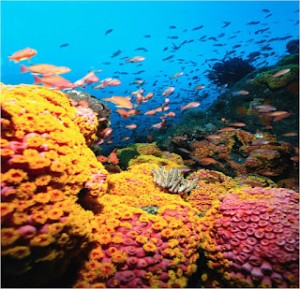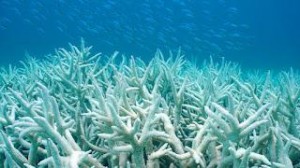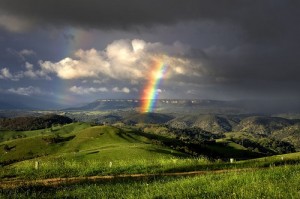By John Elwood
More than 2,600 of the world’s top marine scientists warned last week that coral reefs around the world are in rapid decline due to human impacts. They urged action on climate to stem the tide of decay.
The world’s largest society of reef scientists, the International Coral Reef Symposium (ICRS), met in the northeastern Australian city of Cairns, and warned that people’s livelihoods were at risk. They pinpointed warming oceans, increasing ocean acidification, overfishing, and pollution as the principal causes of present and future reef decay. Take a look at their Consensus Statement.

Like so much of God’s creation, coral reefs provide unseen services to the earth and its creatures. They function as natural breakwaters for waves and storms, protecting coastal communities. They are crucial to global tourism. Their diverse creatures provide countless pharmaceutical benefits. And coral reefs provide food and livelihood for many millions of people.
“Worldwide, more than three billion people depend on marine and coastal biodiversity for their livelihoods,” said Jane Lubchenco, a marine scientist and head of the U.S. National Oceanic and Atmospheric Administration. “Marine fisheries directly or indirectly employ over 200 million people.” Corals act as the nursery for many fish species. No one is certain what would happen to global sea life without them.
The ICRS warned that 25-30% of the world’s reefs are already severely degraded. And the Great Barrier Reef off Australia has seen a 50 percent decline in the last 50 years, scientists say.
The ICRS Consensus Statement warned of much greater near-term losses: During this century, “CO2 emissions at the current rate will warm sea surface temperatures by at least 2-3 °C, raise sea-level by as much as 1.7 meters, reduce ocean pH from 8.1 to less than 7.9, and increase storm frequency and/or intensity.”

They are describing a perfect storm for coral reef decay: warmer ocean temperatures which cause corals to bleach and often die; ocean acidification from higher atmospheric CO2, which makes it difficult for corals to build their skeletal structures; and rising sea levels and stronger storms, driving increased sedimentation that chokes or buries reefs.
“This combined change in temperature and ocean chemistry,” says the ICRS, “has not occurred since the last reef crisis 55 million years ago.”
To make that clear, the world’s largest reef-science society is warning us that within 88 years, our actions will give rise to conditions not seen in 55 million years. And apparently, that was a bad time for reefs.
Jeremy Jackson, senior scientist at the Smithsonian Institution in the U.S. explains, “What’s good for reefs is also critically important for people and we should wake up to that fact.”
For the most part, we are lay people, not research scientists. What should we make of these warnings from the scientists? The Christian Reformed Church (CRC) Creation Stewardship Report has some excellent guidance for us:
“Pay particular attention to consensus statements from scientific societies. It is true that scientists too are human; scientific conclusions may also contain error, exaggeration, or misstatement. As imperfect humans, this is unavoidable. Nevertheless, when a broad community of experienced and reliable experts, utilizing the checks and balances implicit in scientific review, agrees on consistent conclusions over a period of several decades, it is reasonable to accept these broadly based conclusions and plan for the future.” (CRC, p.39)
The Consensus Statement on coral reefs would appear to be just the sort of broad agreement that the CRC has in mind. As partners by grace in God’s work of reconciling all things, we recognize that this includes his oceans and its innumerable creatures. But we now hear that our own activities are contributing to harmful conditions not seen on earth for millions of years.
What should we do? Again, we look to the CRC for help:
Pray: Individually and communally, ask God for forgiveness for the sins of arrogance, pride, and greed that cause us to fail in our roles as stewards of creation, consume more than we need or ought, and ignore the plight of the poor and vulnerable. Consider joining one of EEN’s prayer gatherings or even being a part of EEN’s Prayer Team.
Increase awareness: Learn together what it would mean to act with justice and mercy among, with, and on behalf of those most affected by environmental degradation. Share this video from Rev. Mitch Hescox about the importance of being a good steward of God’s creation.
Walk and talk: Personally and as a community, take an inventory of where we stand with respect to God’s creation, and brainstorm together where we will go from here. (CRC, p.57). Consider starting with this short study on how to be a good steward of God’s oceans.
Let us add one further thought: Do it quickly! The passage of time does not favor God’s vulnerable reef creatures and the human communities that depend on them. It’s time to take action to reduce our own contribution to the oceans decay. Consider taking action by supporting Young Evangelicals for Climate Action (Y.E.C.A.), taking action on the need to reduce carbon pollution, or join the Creation Care Teaching Institute and join with others taking meaningful steps.
Action starts with you.
You can read more of John’s writing here.















